Despite the strong likelihood that Bears Ears National Monument will be modified in coming months, Forest Service officials in southeastern Utah are planning to destroy at least 14 public roads within the monument’s current boundaries.
by Marjorie Haun
After an intensive, 6-month review of 27 recently-created or enlarged national monuments, Interior Secretary Ryan Zinke has reportedly made recommendations to the Trump Administration that 10 of those monuments be downsized or otherwise modified, including Bears Ears National Monument (BENM). Despite the strong likelihood that BENM, which was created by President Obama on December 28, 2016, will be modified in coming months, Forest Service officials in southeastern Utah are planning to destroy at least 14 public roads within the monument’s current boundaries.
On September 13, the San Juan County, Utah website posted an article about plans by local Forest Service (USFS) officials to ‘obliterate’ some of the public roads which lead into the Manti-La Sal National Forest west of Monticello, apparently within BENM. It is a violation of National Environmental Policy Act (NEPA) procedure to take such action without input from local governmental bodies and citizens, especially when the actions may affect access to what are supposed to be multiple use public lands. This action may violate NEPA since the Manti-La Sal USFS has not allowed for a public comment period, and the roads to be ‘obliterated’ are not included in its most recent (2010) transportation plan. The article says:
Forest Service to “Obliterate” Roads
Local Forest Service officials have erected signs indicating that 14 roads will be obliterated over the next few weeks. Posted carsonite signs state “ROAD TO BE OBLITERATED IN” with a hand-written time frame and date. Typically the stated time frame is 2 to 3 weeks and the date is late August.
The signed roads were not included in the Forest Service 2010 motor vehicle transportation plan.
Based on conversations with the crew doing the work, it appears that the roads will not be obliterated (in the sense of being wiped out), but instead, will be blocked at one or both ends by large rocks, logs, dirt berms or trenches.
The roads to be obliterated are in the north and south Elk Ridge and the Woodenshoe areas of the Monticello District of the Manti La Sal National Forest. The roads themselves run the gamut from unused and almost totally rehabilitated tracks to good roads that serve useful purposes with little or no resource impacts. In most cases it appears that obliterating the road will cause more resource damage than leaving the road as-is.
San Juan County’s concerns with this project include the following:
•To our knowledge there has been no public notification or involvement. We found out about the project through information provided by County residents who had seen the signs.
•The opportunity for public response is constrained by the very short time from the signs being put up to the beginning of obliteration; typically 2 to 3 weeks.
•As mentioned above, some of the roads serve multiple useful purposes with no observable resource damage. These roads should be candidates to be added to the Forest travel plan.
•The Manti La Sal National Forest is in the beginning stages of developing a new forest resource management plan which will contain guidance for transportation planning. This would seem to be an inopportune time to be obliterating potentially important and valuable transportation infrastructure.
•The Forest Service recognizes that more efficient management solutions are needed to meet the increasing public demands for recreation and other use on the forest. Not obliterating potential valuable and in-place transportation infrastructure would seem to be consistent with forward-looking, efficient management.
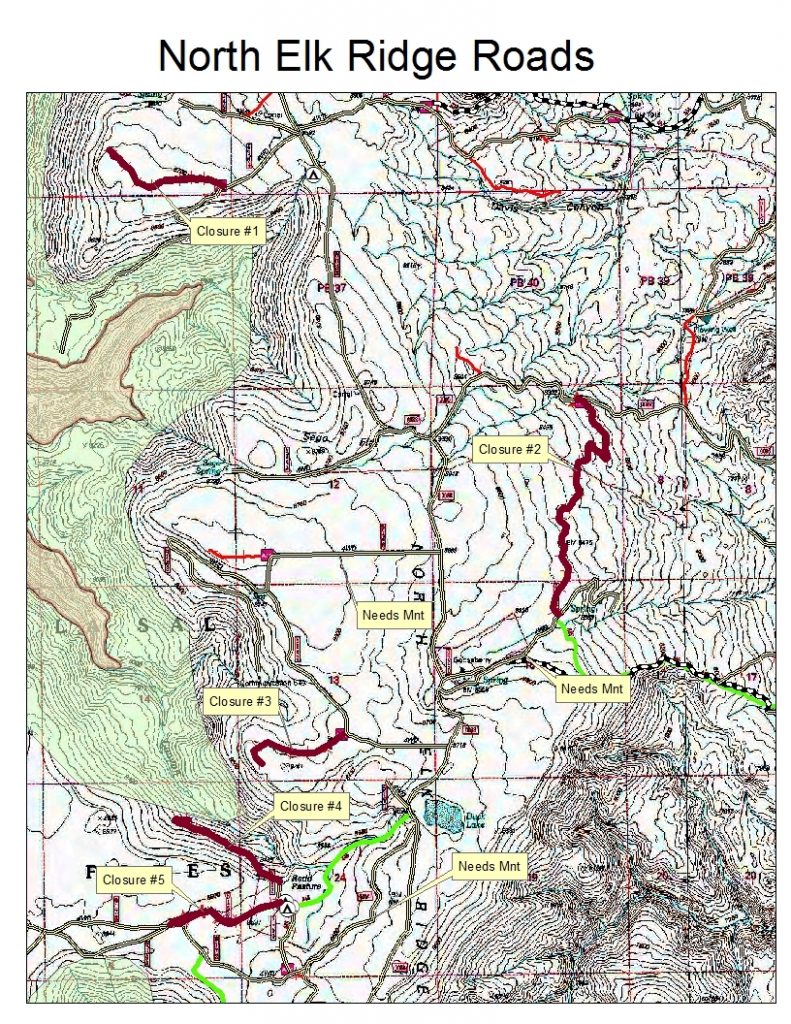
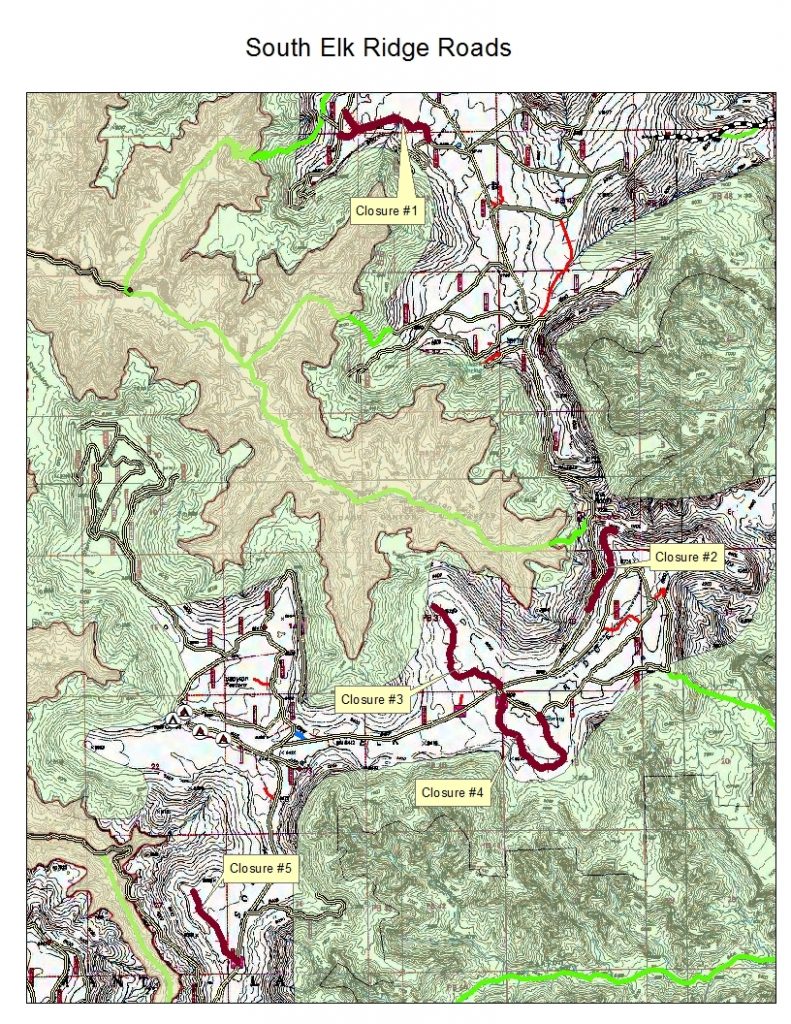
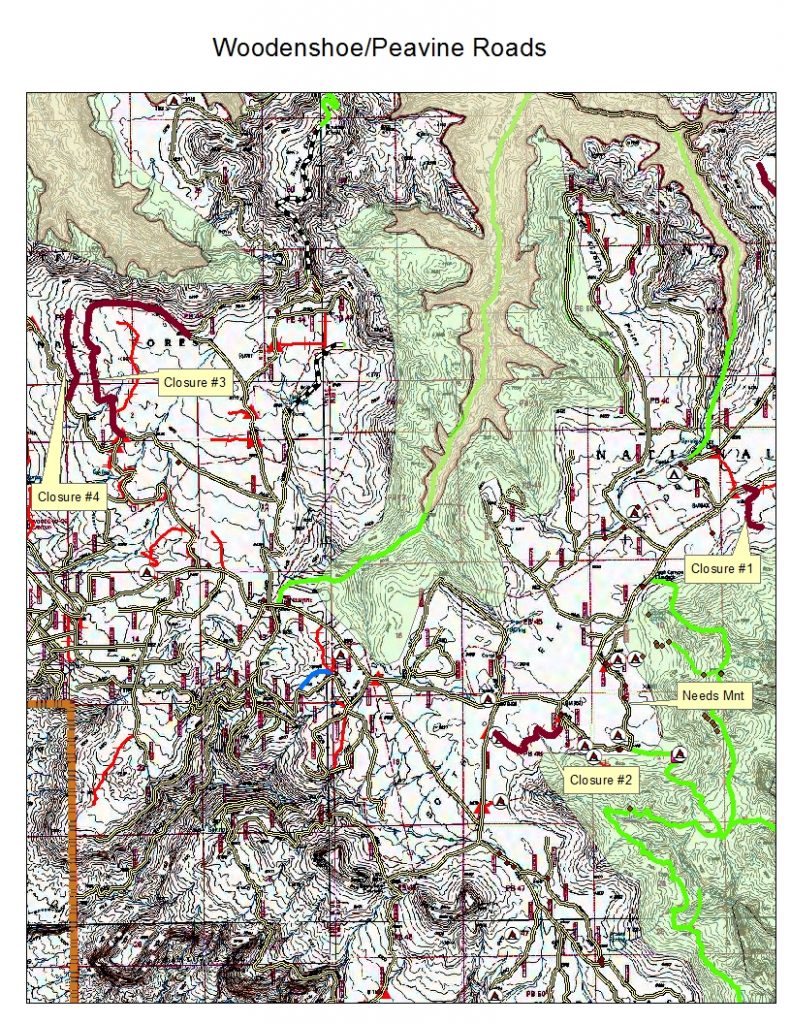
See the full San Juan County post here
Another troubling aspect of this action by the USFS is an apparent unwillingness to take questions from at least one San Juan County local. According to Wendy Black, a resident of SJC who is active in local issues which affect natural resources and public lands, the USFS is blocking her ability to comment on the planned ‘obliteration’ of forest roads. Black told Free Range Report that she became frustrated following her attempts to communicate with someone at the local USFS office about the matter. On September 19th she sent an email through the USFS ‘comments’ section on their official website. ( https://www.fs.usda.gov/contactus/mantilasal/about-forest/contactus ) The email read, “Why are you closing roads on Elk Ridge?”
Black explained, “This comment section was the only recourse I had left. I had tried numerous times to call the Monticello USFS office, the Moab (Utah) USFS office and the Price (Utah) USFS office to find out what I could about the road closures. No answer.” According to Black, since she received no response to her first comment, she attempted to submit another comment on September 20. After putting in her personal contact information, she clicked ‘send’ on the comment page, and, “a message came up announcing my access was denied. I tried again. Same response. I then tried it again with my husband’s email address and poof, it went through.”
Although Black’s inability to submit a comment could be due to a technical glitch, it is the responsibility of USFS to take public comments and respond in a timely manner. Black has since issued a complaint to the Department of Agriculture detailing what she perceives as an intentional effort to block her comments regarding the roads’ ‘obliteration.’
San Juan County appears to have been taken by surprise by the USFS’ erection of ‘to be obliterated’ signs on its roads. The lack of public notification, or provisions for public commentary, lends to suspicion about the agency’s motivations in limiting access to public lands, given the controversial and potentially changing status of Bears Ears National Monument.
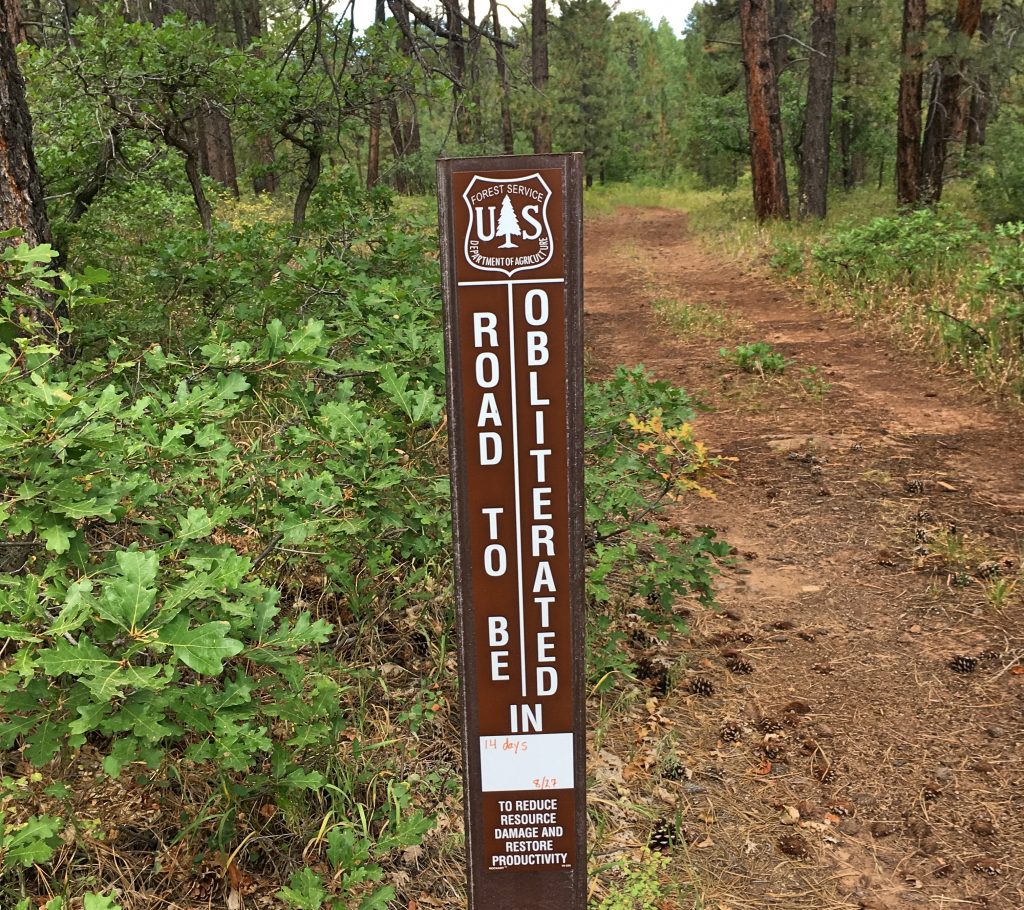
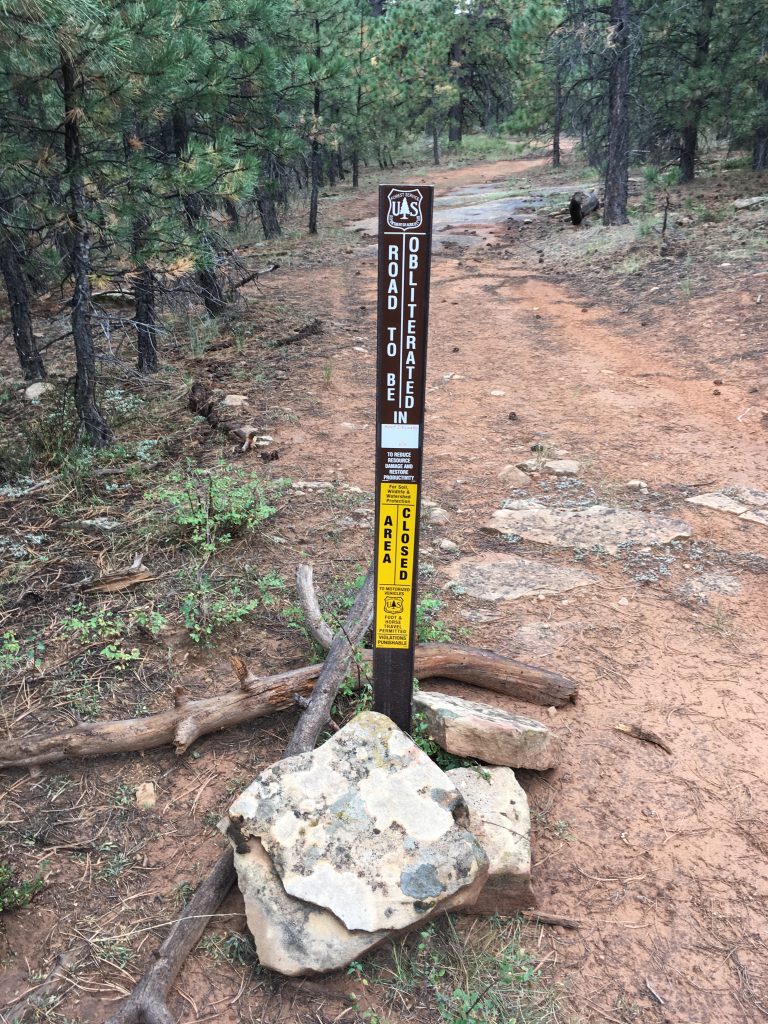
[paypal_donation_button]
Free Range Report
[wp_ad_camp_3]
[wp_ad_camp_2]
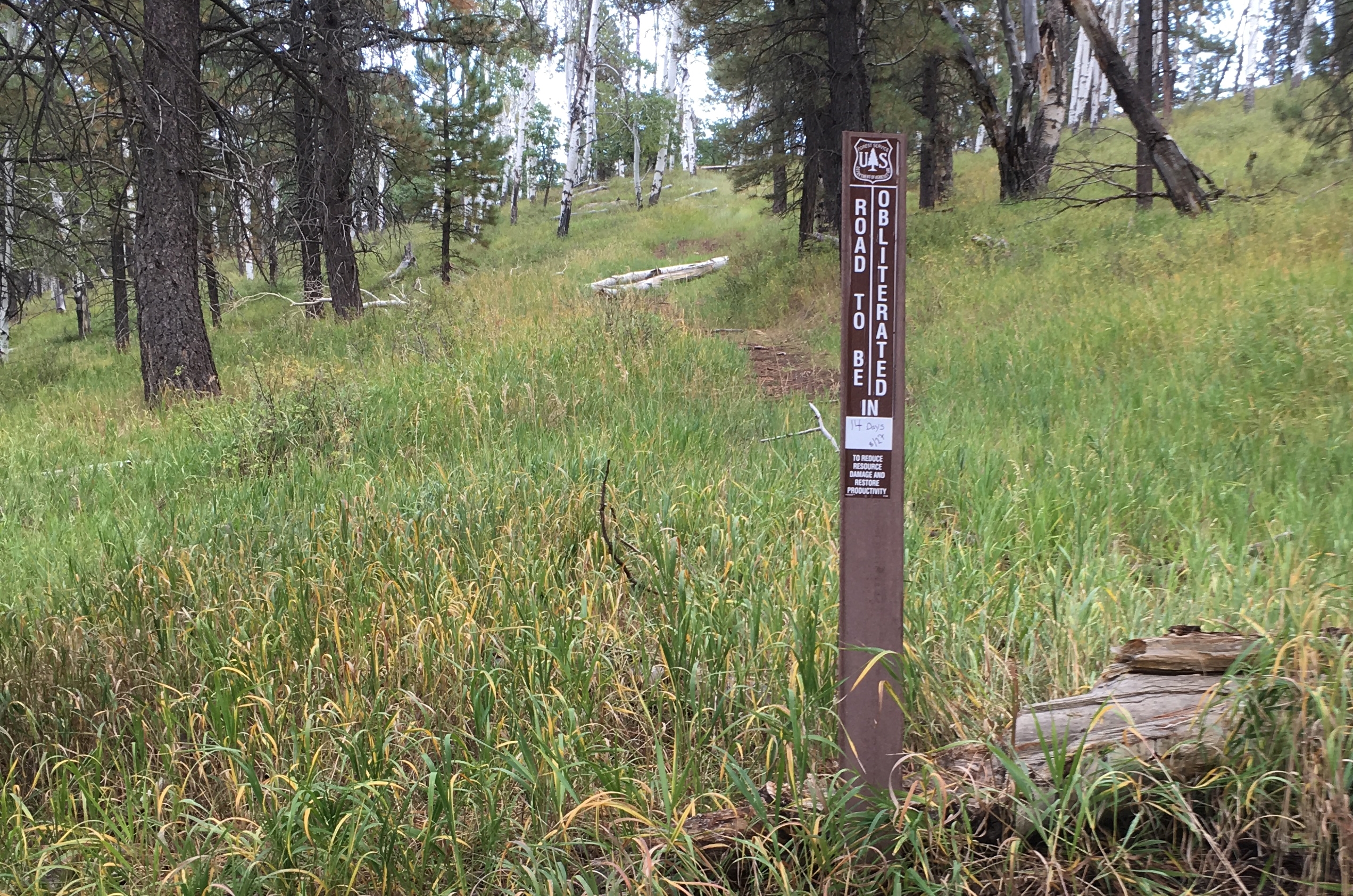



This is more reason that the US Federal government should be limited to the District of Columbia which the Constitution of the US does. All such decisions should be as close to the people as possible. The States should make all these decisions based on serving the People.